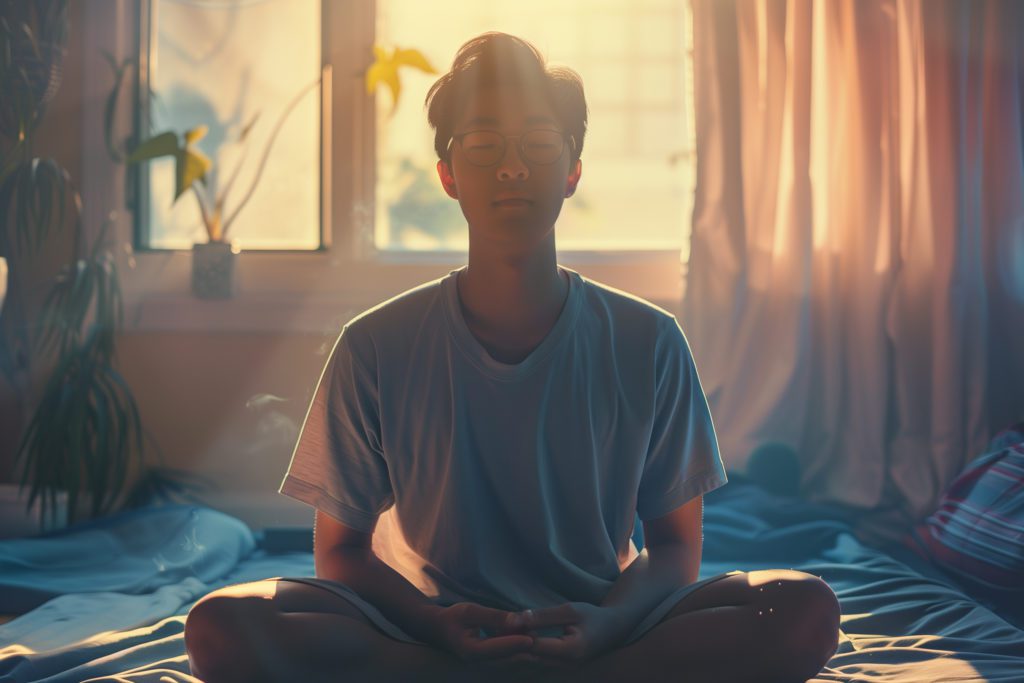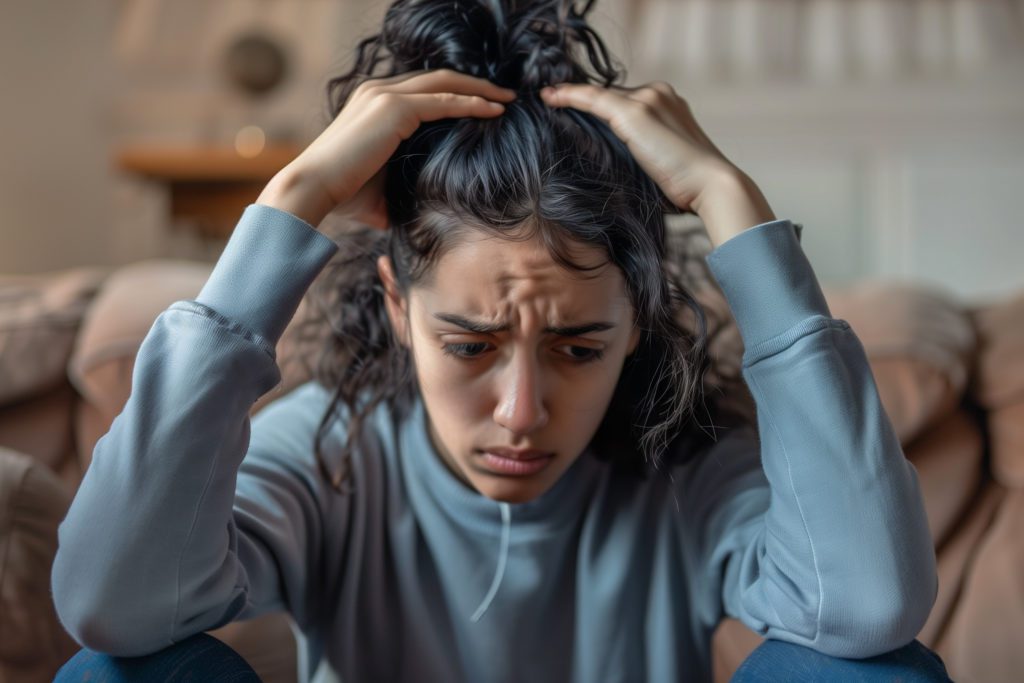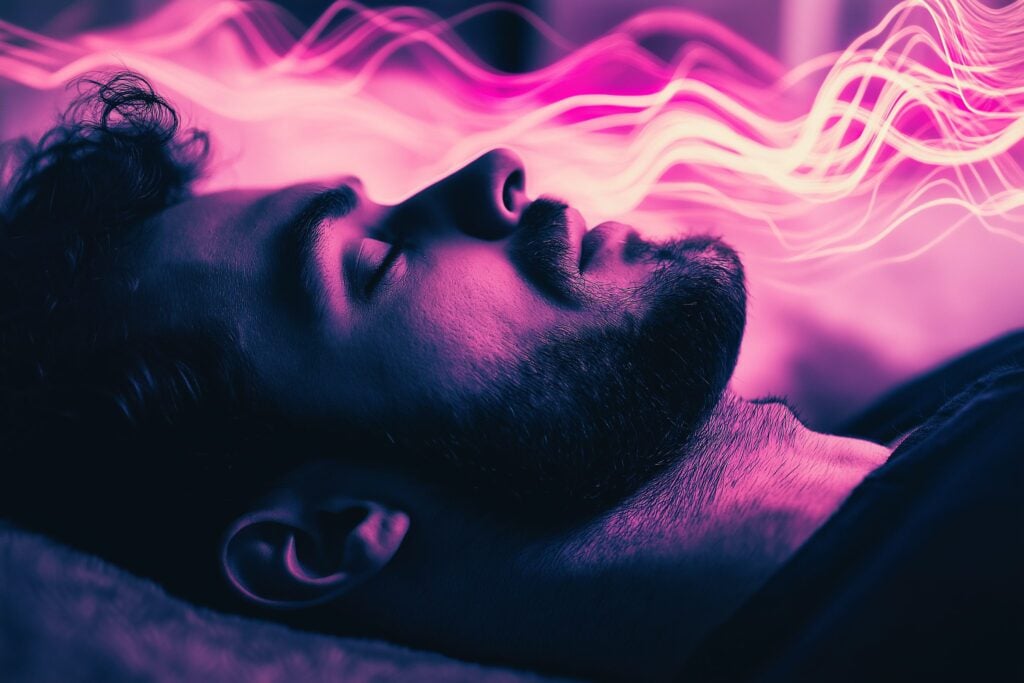
Navigating Nighttime Anxiety: Strategies to Calm Your Mind for Restful Sleep
Struggling with anxiety at night? Explore practical strategies for improved sleep quality and proven methods to alleviate symptoms naturally.

For those of you who struggle with anxiety, you’re not alone—even if you face it at night. Nighttime anxiety is a common occurrence, one that can leave you up late at night, too anxious to fall asleep to rest. In fact, anxiety and sleep disturbance go hand in hand as they are interconnected issues that affect up to 284 million people worldwide.
But how do you solve nighttime anxiety, or rather, how do you alleviate it enough to get to sleep? That’s a question on everyone’s minds, and we seek to answer it in this article. We’ll explore the symptoms of nighttime anxiety and how they might present themselves before we get into the science behind sleep and anxiety.
Finally, we’ll share some essential strategies you can use today to help calm your nerves as you lie down to rest. Whether you get nightly anxiety or the occasional episode, you’ll benefit from all that is to come.
Understanding Nighttime Anxiety
At night, your anxiety can look a lot different than it does. By day, your anxiety might present itself in varying forms—as gastrointestinal problems or an increased heart rate—but at night, you might feel as though you are having a panic attack. If you are asleep, you could even wake yourself up because of a panic attack, feeling the same dread and fear you might feel if you had experienced it during the day.
Anxiety is caused by a number of concerns, whether it is experienced during the day or at night. If you have medical conditions like diabetes or chronic pain, you might develop anxiety, just as someone would if they generally experience a stressful life. However, lack of sleep can be a major trigger for anxiety, even preventing you from sleeping. With that in mind, let’s dive deeper into the science behind anxiety and sleep and the supposed cycle that exists.
The Science Behind Anxiety and Sleep
Many people do not believe it, but anxiety and sleep have a bidirectional relationship, meaning that they impact one another. Anxiety can cause you to lose sleep, but losing sleep can also cause you to develop symptoms of anxiety. In one study, students with test anxiety demonstrated that sleep and anxiety can “feed one another,” making it evident that this is a cycle that is difficult to escape.
In fact, anxiety is actually a symptom of insomnia, showing that the two issues are deeply intertwined. Whenever we are exposed to stress, too, and our bodies release cortisol, this can also lead to anxiety and further challenges with our sleep.
One study showed that repeated or prolonged stress can lead to dysfunctional arousal states and anxiety, both of which lead to disrupted rest or difficulty sleeping (Source: Dialogues in Clinical Neuroscience). Now that we have explored the science behind anxiety and sleep let’s discuss some strategies designed to help you calm your mind as bedtime arrives.
Strategies to Calm Your Mind Before Bedtime
Now that you know a little more about nighttime anxiety, you might wonder how to encourage better rest. Fortunately, based on proven research, we have found a few methods you can try. Here are some ideas that you can implement in your life for more restorative, productive sleep:
- Establish a Consistent Sleep Routine: If you are trying to train your body to relax more before you go to bed, you can train yourself to go to bed around the same time every night. For those who consistently get up and go to bed by a certain time, your body will ease into the schedule, and you may even create a routine for yourself that allows you to wind down easily.
- Mindfulness and Relaxation Techniques: After changing your routine, the next step you can take to encourage restful nights despite anxiety is to de-stress. You can do this in a variety of ways, whether you engage in deep breathing, meditation, or even guided visualization exercises. Deep breathing can help you relax your body, slow your heartbeat, and eventually, your mind.
- Cognitive Behavioral Therapy: It never hurts to consider seeing a professional if you feel your anxiety really is holding you back from proper rest and recovery. Cognitive behavioral therapy has been proven to help improve sleep quality for those with anxiety, explicitly affecting both quality and latency. If you’re seeking support for your anxiety at night, it is worth contacting a therapist near you.
- Bedroom Alterations: If you truly want to encourage better rest, creating the best sleep environment is paramount. You should have an inviting space where you can feel relaxed. That means eliminating screens, selecting comfortable pillows and mattresses, and reducing the noise and light entering your room at night.
- Natural Remedies and Aromatherapy: For those seeking a natural pathway to de-stress before bed, aromatherapy can be a great source of support. If you choose essential oils like lavender, you can encourage sleep, specifically slow and deep wave sleep. Just get a diffuser or use aromatherapy sprays, and you’ll begin to notice a difference!
Aside from these strategies that you can use to calm your mind before bed, you can also make healthy lifestyle changes, like ditching caffeine and alcohol hours before bed. No matter what strategy you use, don’t be afraid to experiment and find what works for you. When in doubt, you can seek help from a qualified professional to overcome your anxiety and encourage more restful nights.
Protect Your Sleep and Navigate Nighttime Anxiety
It can be challenging to overcome nighttime anxiety, but now that you understand more about it and how to mitigate it, you can enjoy more restful nights. If your symptoms become too much and you suffer from extreme sleep problems, it is always wise to reach for help from a qualified medical professional.
For more insights into the latest studies on sleep health, read more on our website today.

Written by
Marie Soukup
Marie Soukup is a seasoned copywriter, editor, and Integrative Nutrition Health Coach with a certificate from the Institute of Integrative Nutrition (IIN). With years of experience working with brands across diverse industries, Marie is passionate about holistic health and crafting compelling content.
Download Pillow
Get help
Press & News
Legal
Connect
X (Twitter)
Company
Copyright © Neybox Digital Ltd.



